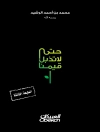This practice-oriented text presents evidence-based assessment methods and interventions that have been extensively field-tested in child welfare settings. The contributors offer empirical and field insights, comprehensive treatment models, and curricula in key areas such as child maltreatment, substance abuse, parent training, social skills, and youth employment interventions. For the professional reader, the book offers real-world guidance on social work practice, from hiring opportunities within a system to promoting lasting change as families and their issues grow increasingly complex. These chapters also take significant steps toward future improvements in child protection systems as the field evolves toward being more coordinated, effective, and professional.
Included in the coverage:
- Legal requisites for social work practice in child abuse and neglect.
- The integrated model for human service delivery in child welfare.
- Risk assessment: issues and implementation in child protective services.
- Substance use and abuse: screening tools and assessment instruments.
- The process of intervention with multi-problem families.
- Preventative services for children and adolescents.
Its multi-level approach makes Evidence-Informed Assessment and Practice in Child Welfare an essential professional development text for social workers, particularly those new to the job, as well as a progressive blueprint for social work administrators.
表中的内容
Preface.- Section One- The Context for Providing Evidence-Informed Assessments for Children and Families.- Educating BSW and MSW Social Workers to Practice in Child Welfare Services.- Legal Requisites for Social Work Practice in Child Abuse and Neglect.- Child Development.- Contributing Factors to Child Sexual Abuse.- The Integrated Model for Human Service Delivery in Child Welfare.- Section Two- Field-Tested Evidence-Informed Assessments.- Risk Assessment: Issues and Implementation in Child Protective Services.- Assessment Methods.- Substance Use and Abuse: Screening Tools and Assessment Instruments.- Section Three- Field-Tested Evidence-Informed Interventions.- The process of Intervention with Multi-problem Families: Theoretical and Practical Guidelines.- A Comprehensive Treatment Model for Child Maltreatment.- Child Maltreatment.-Parent Training.- Adolescent Employment Intervention.- The Empirical Base for the Implementation of Social Skills Training with Maltreated Children.- Preventative Services for Children and Adolescents.
关于作者
JOHN S. WODARSKI, Ph.D., M.S.S.W., is a Professor of Social Work at the University of Tennessee College of Social Work. He also serves as a Senior Research Scientist with the University of Tennessee Children’s Mental Health Services Research Center. Dr. Wodarski received his B.S. degree from Florida State University, the M.S.S.W degree from the University of Tennessee, and the Ph. D. from Washington University in Saint Louis. From 1993-2000 he served as the Janet B. Wattles Research Professor and Director for the Research Center and Doctoral Program of the State University of New York at Buffalo. His main interests include Child and Adolescent Health Behavior, including research on violence, substance abuse, depression, sexuality and employment. Dr. Wodarski’s research experiences include multiple funded projects which form the basis for his knowledge of the use of peer structures to facilitate learning. He is currently serving as the Principal Investigator on three SAMHSA-funded grants: “HIV/AIDS and Substance Abuse Primary Prevention in Minority Adolescents, ” “HIV/AIDS Primary Prevention Program with Caribbean Youth, ” and “The Expanded Care Coordination through the Use of Health Information Technology.”












